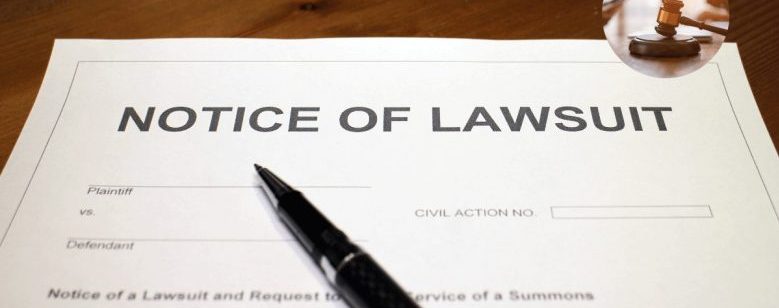Bench Craft Company Lawsuit

In the world of advertising and marketing, companies often find themselves navigating a complex landscape filled with competition, innovation, and, occasionally, legal disputes. One such case that has captured the attention of industry observers is the Bench Craft Company lawsuit. This legal saga has unfolded over the past few years, revealing a web of allegations, counterclaims, and legal intricacies.
Background of Bench Craft Company
Bench Craft Company, established in the early 1980s, made a name for itself by providing golf course advertising services. The company specialized in producing and installing customized golf course amenities, such as tee signs, yardage guides, and scorecards. Over the years, Bench Craft expanded its operations, partnering with golf courses across the country to offer businesses a unique platform for local advertising.
The Lawsuit Unveiled
The lawsuit against Bench Craft Company surfaced when a group of dissatisfied clients claimed that the company engaged in deceptive practices and failed to deliver on its promises. According to the plaintiffs, Bench Craft allegedly misrepresented the reach and impact of its advertising services, leading to financial losses for the businesses that invested in their platform.
Key Allegations
- Misrepresentation of Advertising Reach: One of the primary allegations against Bench Craft Company revolves around the purported exaggeration of its advertising reach. Plaintiffs argue that the company misled them about the number of impressions and the effectiveness of their advertising campaigns, ultimately leaving businesses with unmet expectations.
- Failure to Deliver Promised Results: Clients assert that Bench Craft failed to deliver the promised results outlined in their advertising agreements. This includes claims of inadequate lead generation, insufficient customer engagement, and an overall lack of return on investment.
- Unfair Contractual Practices: Some plaintiffs argue that the contractual agreements with Bench Craft were structured in a way that favored the company disproportionately. Allegedly, the terms and conditions heavily favored Bench Craft, making it challenging for businesses to terminate agreements or seek compensation for underperformance.
Counterclaims by Bench Craft Company
In response to the lawsuit, Bench Craft Company has vehemently denied the allegations, asserting that the dissatisfied clients misunderstood the nature of the advertising services provided. The company contends that it has fulfilled its contractual obligations and that any perceived shortcomings are the result of factors beyond its control.
Key Counterarguments
- Client Expectations: Bench Craft argues that the dissatisfaction of clients stems from unrealistic expectations rather than shortcomings on the company’s part. The defense claims that some businesses anticipated immediate and substantial returns, which may not align with the reality of advertising outcomes.
- External Factors: Bench Craft points to external factors, such as changes in the local economy, shifts in consumer behavior, or other unforeseen circumstances, as contributing to the alleged underperformance of certain advertising campaigns. The company maintains that it cannot be held responsible for factors beyond its control.
- Contractual Adherence: Bench Craft asserts that it has adhered to the terms and conditions outlined in its contracts. The company argues that any perceived unfairness in the contractual agreements is a result of clients’ failure to thoroughly review and understand the terms before entering into agreements.
Current Status of the Lawsuit
As of the latest updates, the Bench Craft Company lawsuit is still in progress, with both parties presenting their evidence and arguments in court. The legal proceedings have garnered attention from industry professionals, legal experts, and businesses involved in similar advertising ventures.
Potential Impact on the Advertising Industry
The outcome of the Bench Craft Company lawsuit could have far-reaching implications for the advertising industry. If the plaintiffs succeed, it may prompt businesses to scrutinize advertising agreements more closely and seek greater transparency from advertising service providers. Conversely, if Bench Craft prevails, it could reinforce the importance of managing client expectations and the inherent uncertainties in advertising outcomes.
Lessons Learned and Best Practices
Regardless of the lawsuit’s outcome, the Bench Craft case serves as a cautionary tale for businesses engaging in advertising partnerships. Here are some key lessons learned and best practices for businesses involved in similar ventures:
- Thorough Contractual Review: Businesses should thoroughly review and understand the terms and conditions of any advertising agreements before entering into contracts. Legal counsel may be sought to ensure that the terms are fair, reasonable, and mutually beneficial.
- Clear Communication of Expectations: Both advertising service providers and businesses should engage in clear and open communication to manage expectations. Realistic goals and anticipated outcomes should be discussed and documented to avoid misunderstandings later on.
- Performance Metrics and Reporting: Advertising service providers should transparently communicate performance metrics and provide regular reports to clients. Businesses, in turn, should actively monitor and evaluate the effectiveness of advertising campaigns based on these metrics.
- Flexibility in Contracts: Contractual agreements should allow for flexibility in the face of unforeseen circumstances. Provisions for adjusting strategies, revising goals, or terminating agreements under specific conditions can help both parties adapt to changing circumstances.
Conclusion
The Bench Craft Company lawsuit represents a complex legal battle within the advertising industry, shedding light on the challenges and potential pitfalls associated with such partnerships. As the case unfolds, businesses and industry professionals alike are closely watching to glean insights into best practices, legal nuances, and the evolving landscape of advertising services. The ultimate resolution of this lawsuit will undoubtedly influence the future dynamics of client-advertiser relationships and set precedents for the industry at large.





